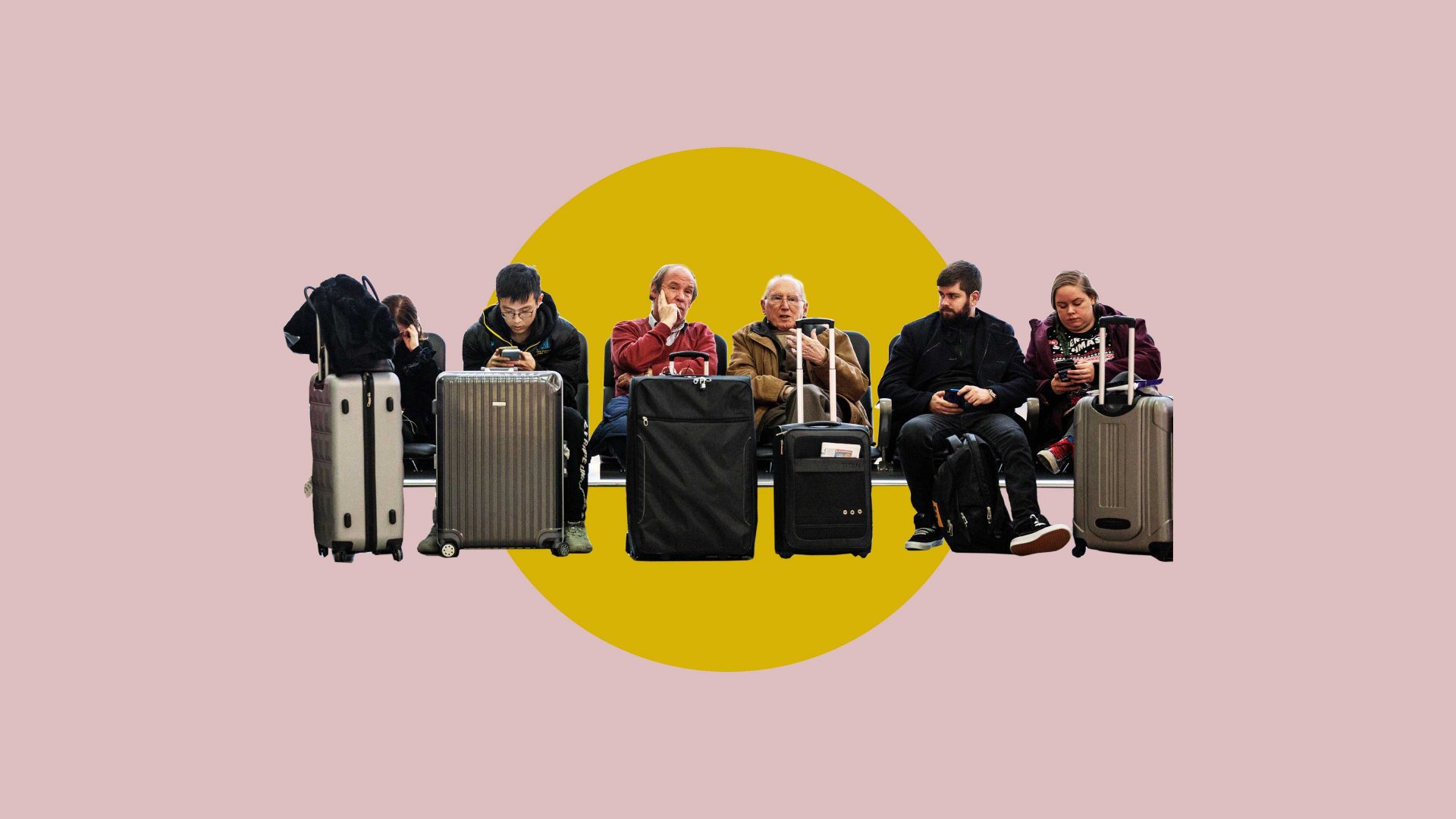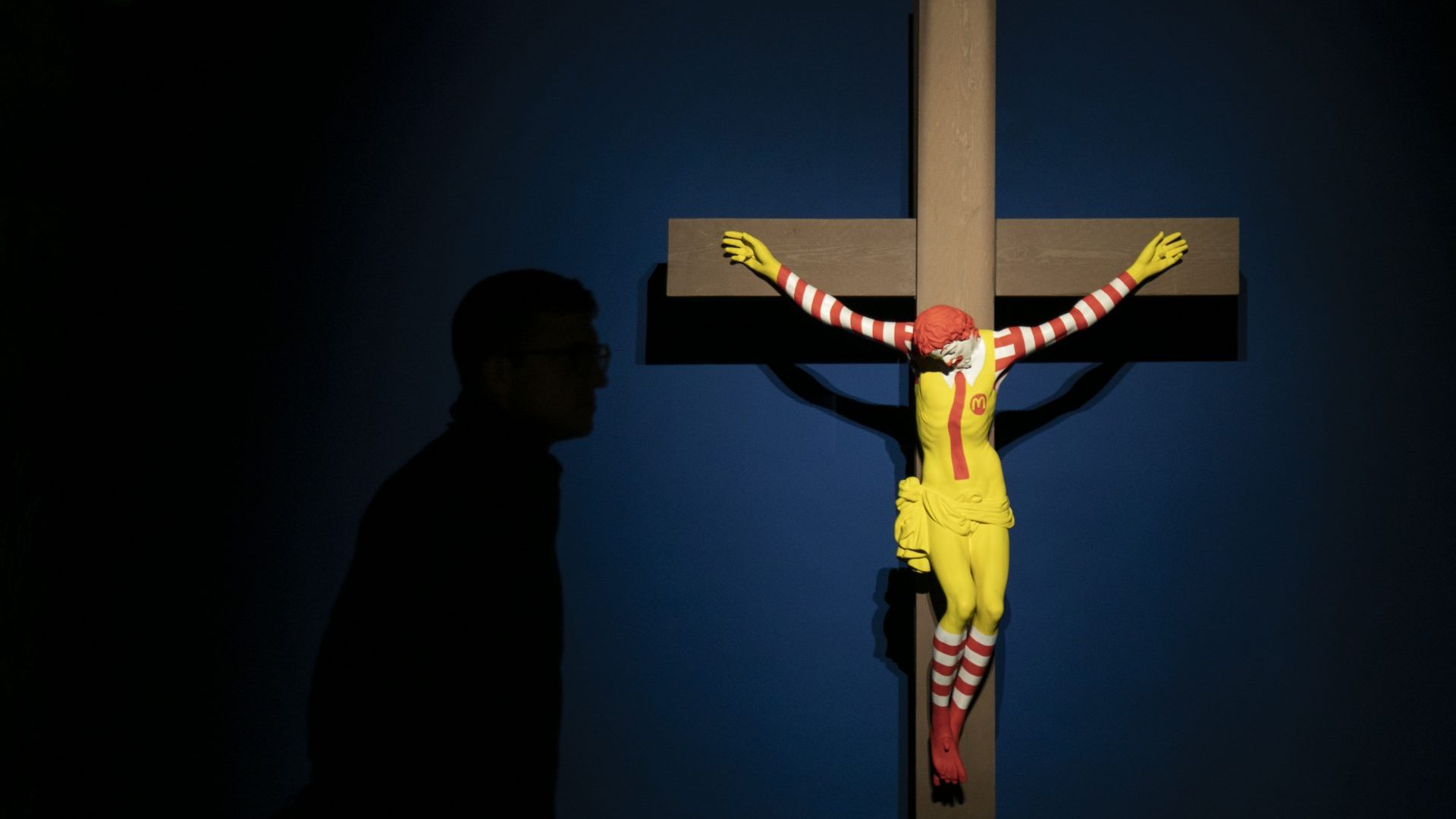Perhaps you have the antiquated idea that British airports exist to get you on and off planes. In fact, they are sophisticated machines designed for the precision task of separating two closely knit elements.
Just as Cern’s Large Hadron Collider splits apart protons, so the airport splits travellers from the contents of their wallets. They keep the latter, and throw away the former, for who wants a traveller without a full wallet?
On March 2 this year, at 11am, someone was killed by a train between East Croydon and Gatwick airport, all trains ceased to run, and Gatwick airport cashed in.
I know because, a few minutes before the incident, I had boarded a train in north London, in plenty of time for a flight to Rome at 4.40 that afternoon. I will not tell you the details of the next five hours of my life, for you have not got all day. Since no one knew what was going on, I had to make wild guesses, which included two taxis and a very slow train to West Croydon. My taxi joined a very long queue of taxis at the airport, because hundreds of passengers were in my position. So I jumped out and ran the last half-mile.
I nonetheless had to pay the £5 charge that Gatwick now makes to let a car drop off its passengers, as did the passengers in hundreds of other hastily hired taxis. It was just a part of Gatwick’s windfall that day.
I arrived at departures just as my flight closed, but was told that I could still catch it: the easyJet people would get me through security, if I could find them, which, eventually, I did.
Gate 107 is down endless corridors, up and down several staircases, and through a long, winding route they force you to take around shops selling expensive perfume, alcohol and clothes. Once, it was possible for a determined traveller to walk straight past them. Now, a traveller in a hurry must run the gauntlet of the shopping spaces, where unctuous functionaries urge you to spray perfume on your wrist or sample gin. I’d have made the flight if I’d been allowed to run direct.
They closed the flight just before I and five more passengers arrived, panting and stressed. We tapped pathetically on the window as we watched the ground crew fill the hold. They could have let us in, but they were under instructions not to. Any delay might cost the airline money.
It took two hours for easyJet to book me on a flight the next morning and inform me that they would not provide a hotel for me (though they own hotels at the airport) nor even book one for me. So at 6pm I walked into the nearest, the Hilton, which an American couple told me they had just booked for £150. By the time I got there, the hotel had realised that the airport was teeming with desperate travellers who had missed their flights, and put their prices up to £205.
We were all tired, stressed and impoverished by unexpected taxi fares and hotels, and all the airport and its associated airlines and hotels saw was a chance to make money from our misery.
On the other side of London, Stansted airport has had an £80m “terminal transformation project”. This has involved taking away most of the flight indicators, presumably because these are an unwanted distraction from the primary purpose of the place, which is to sell you things.
Should you want a disquisition on different sorts of perfume, or gin, or any number of other expensive things, a smart and knowledgeable person will be instantly available to provide it. But if you ask that person which direction your gate number might be, they will look at you with scarcely veiled contempt. A traveller with such poverty of expectation is beneath their notice.
A couple of years ago, I found myself in Berlin’s Schönefeld airport, where I heard a strange, anachronistic sound. It was a tannoy, of the sort they used to have in British airports, and a voice was saying clearly, in German and then in English: “Will the two remaining passengers for flight number such-and-such please report to gate number so-and-so.”
Gatwick and Stansted could explain to them how foolish this is. What if those two remaining passengers are at the scent shop and they hear the announcement before the sales person has quite finished with them?
There are still a few things we can teach the Germans about commerce.
Francis Beckett is an author, journalist, biographer, and contemporary historian



